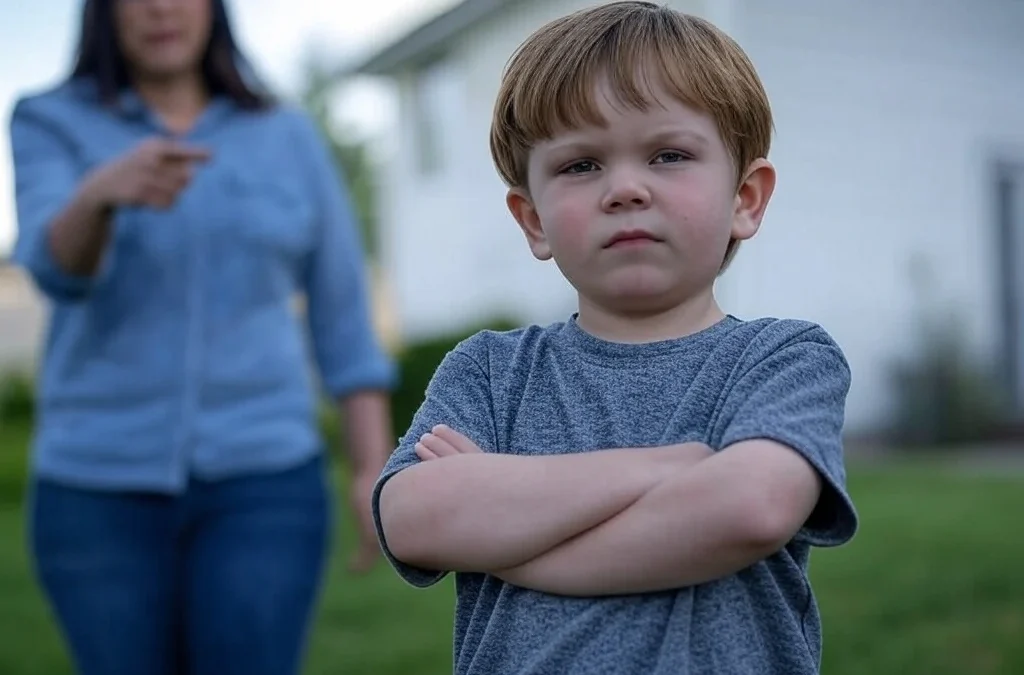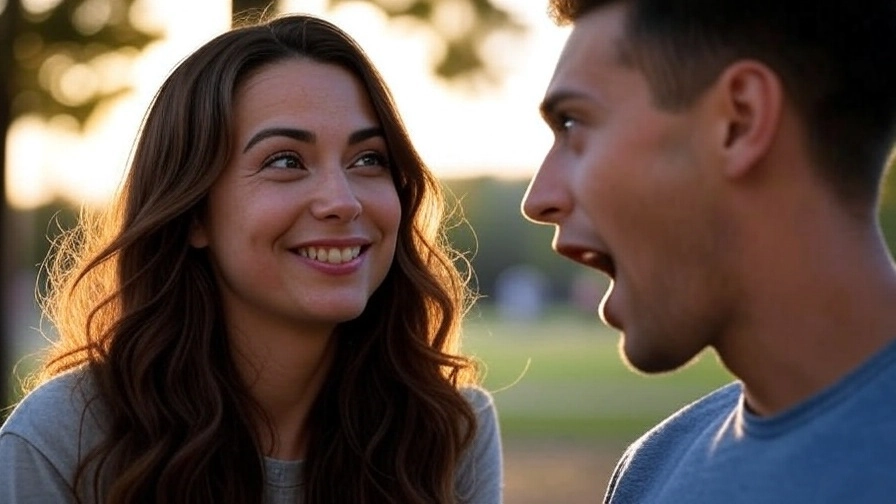Have you ever wondered how a small decision today might lead to a big change tomorrow? This is the essence of the Butterfly Effect, a concept that suggests tiny actions can have far-reaching consequences. Imagine skipping your morning coffee once, and somehow that leads to a chain of events that changes your life. It sounds unbelievable, but history and science are full of examples where small causes have led to big effects. This idea isn’t just for scientists or philosophers—it’s something that affects all of us in our everyday lives.
Think of the moments when you’ve chosen one path over another. Maybe you took a different route to work and bumped into an old friend, sparking a new opportunity. Or perhaps you’ve heard about the flap of a butterfly’s wings in Brazil setting off a tornado in Texas, a metaphor used to describe this phenomenon. In this article, we will explore 20 fascinating examples of the Butterfly Effect in action. These stories show how interconnected our world is and make us question how our choices might ripple out in ways we can’t yet see.
What is the Butterfly Effect?
The Butterfly Effect is a concept from chaos theory that explains how small changes can lead to big, sometimes unexpected, outcomes. It suggests that even tiny actions or events can set off a chain of reactions with far-reaching consequences. The term comes from the idea that the flap of a butterfly’s wings in one place could eventually contribute to a tornado in another. While this may sound exaggerated, it’s a way to show how sensitive and interconnected systems can be.
Meteorologist Edward Lorenz first introduced the idea in the 1960s. While studying weather patterns, he discovered that tiny differences in initial conditions, like rounding off a number, could dramatically change long-term forecasts. His work revealed just how unpredictable complex systems, such as weather or human behavior, can be.
The Butterfly Effect isn’t limited to science. It applies to everyday life and history, too. Small decisions, like choosing a different route to work or striking up a conversation with a stranger, can lead to outcomes you’d never expect. On a larger scale, minor events, like a delayed letter or a single decision by a leader, have shaped entire nations.
This concept reminds us that nothing happens in isolation. Everything we do, no matter how small, has the potential to ripple out and create significant impacts. It’s a powerful way to think about how the world works – and how even the smallest actions can matter more than we realize.
The Best Examples of the Butterfly Effect
Every action we take, no matter how small, has the potential to shape the future in ways we may never imagine. The Butterfly Effect shows us how even the smallest events can set off chains of reactions with surprising results. Here are 20 striking examples that show how small moments can create unexpected ripple effects and lead to profound changes over time.
1. A Missed Call Changes a Career Path
A young graduate misses an important job interview due to a delayed train. Instead, they accept a different position at a smaller company. Years later, this job leads them to launch their own successful business. The train delay—a seemingly small event—redirected their entire career trajectory.
2. The Forgotten Keys That Saved a Life
A person forgets their car keys at home, forcing them to go back inside. While retrieving the keys, they avoid a major accident that would have occurred had they left on time. This small delay changes their entire day – and potentially their life.
3. A Letter That Prevented a War
During World War I, a letter explaining an assassination plot was intercepted but not taken seriously. If authorities had acted on it, the war might have been prevented. A small oversight altered the course of history, leading to one of the deadliest conflicts ever.
4. A Chance Encounter Leads to Love
Two strangers accidentally bump into each other at a coffee shop. A spilled drink turns into a conversation, which leads to a lifelong partnership. A minor, awkward moment becomes the starting point for a shared future.
5. A Teacher’s Encouraging Word
A struggling student hears a single piece of encouragement from a teacher: “I believe in you.” This motivates the student to work harder, eventually becoming a successful scientist. The teacher’s small act of kindness impacts countless lives through the scientist’s discoveries.
6. A Misspelled Name Sparks Innovation
A programmer misspells a variable name in a coding project. While fixing the mistake, they discover a new way to solve a technical problem. This discovery leads to the creation of a popular app, all because of one small typo.
7. An Unopened Email Leads to a Breakthrough
A researcher overlooks an email offering a minor collaboration. Months later, they revisit it and find the project has become highly successful. Their eventual involvement changes their field of study, proving that even small decisions about timing can have lasting effects.
8. A Coin Toss Decides a President
In 1876, Rutherford B. Hayes became U.S. President after winning a controversial election. One delegate’s choice, reportedly decided by a coin toss, shifted the result. This single act influenced policies and events that followed, highlighting the power of tiny decisions.
9. A Wrong Turn Creates a Legacy
A traveler takes a wrong turn and stumbles upon a remote, beautiful village. Inspired by its charm, they write a bestselling novel. That wrong turn not only shapes their career but also brings the village global recognition, changing its future forever.
10. The Flight Delay That Inspired an Invention
A frequent traveler experiences frustration due to a delayed flight. This annoyance sparks an idea for a better luggage design. The traveler develops a suitcase with built-in chargers, revolutionizing the travel industry. A small inconvenience turns into worldwide innovation.
11. A Missed Bus Starts a New Friendship
A person misses their usual bus and ends up taking the next one. While waiting, they strike up a conversation with a stranger who shares valuable advice. That advice helps them make a life-changing decision, all because they missed the bus by a few minutes.
12. A Casual Bet Creates an Iconic Landmark
In 1889, a small bet between engineers led to the creation of the Eiffel Tower. It began as a temporary structure for an exhibition but became one of the most iconic monuments in the world. A simple wager shaped the skyline of Paris forever.
13. A Forgotten Birthday Gift Leads to a New Business
Someone forgets to buy their friend a birthday gift and instead bakes them a cake. The friend loves it so much they suggest selling them. Years later, that person owns a thriving bakery, all because they forgot to shop for a present.
14. A Penalty Kick That Changed a Nation
A missed penalty kick in a crucial soccer match caused one country to lose the championship. This led to national debates, changes in sports policies, and inspired future players to train harder. That single moment reshaped the nation’s approach to sports.
15. A Split-Second Decision Saves a Child
A parent hesitates for just a second before crossing a street with their child. In that moment, a car runs a red light at high speed. That tiny pause prevents a tragedy, changing their family’s future in ways they couldn’t have imagined.
16. An Inventor’s Broken Tool Sparks a New Idea
While repairing a broken tool, an inventor accidentally designs a more efficient version. That small mistake leads to the creation of a product that becomes a household name, proving that errors can sometimes lead to breakthroughs.
17. A Forgotten Password Creates a Trend
A writer loses access to their favorite blog because they forget the password. Instead of recovering it, they start a new one with a unique focus. The blog gains massive popularity, influencing countless readers. A simple forgotten password sets this journey in motion.
18. A Small Compliment Rebuilds Confidence
A struggling artist hears a stranger compliment their work in a gallery. That tiny bit of encouragement renews their confidence, and they begin creating again. Years later, their work gains recognition, and they credit the stranger’s kind words for reigniting their passion.
19. A Weather Delay Sparks a Historical Discovery
A scientist is stuck indoors due to unexpected rain. With extra time, they explore a random idea that leads to a major breakthrough in their research. That rainy day changes the course of science, all because they couldn’t go outside.
20. A Random Book Recommendation Changes a Life
A person picks up a book recommended by a friend they rarely see. The ideas in the book inspire them to change careers, move to a new city, and find new purpose. That single suggestion reshapes their entire life.
What Is the Biggest Butterfly Effect in History?
The biggest Butterfly Effect in history is subjective – it depends on how you view the events that shaped the world. However, one of the most striking examples often cited is the assassination of Archduke Franz Ferdinand of Austria in 1914. This single event set off a chain of reactions that led to World War I, an unprecedented conflict that reshaped nations, economies, and global politics.
The assassination itself seemed like a local political issue at first. A young nationalist, Gavrilo Princip, fired the fatal shots during a visit to Sarajevo. The immediate outcome was political tension between Austria-Hungary and Serbia. But this small, localized incident quickly spiraled. Due to a web of alliances and mutual defense agreements, major powers like Germany, Russia, France, and Britain were pulled into the conflict.
World War I brought devastating consequences. Millions of lives were lost. The war also led to the collapse of empires, such as the Austro-Hungarian and Ottoman Empires. Beyond the immediate destruction, the war created conditions for future upheavals. The Treaty of Versailles, for example, imposed harsh penalties on Germany, which contributed to economic hardship and political instability. This directly set the stage for the rise of Adolf Hitler and World War II.
The Butterfly Effect doesn’t stop there. The outcomes of World War I also influenced the Russian Revolution, leading to the formation of the Soviet Union. The geopolitical tensions born from these events shaped the Cold War and much of the modern world order. All of these massive changes can be traced back to one seemingly small act—a single assassination on a summer day in 1914.
This example shows how interconnected human history is. A seemingly isolated event can ripple outward, changing the course of nations and the lives of billions. It’s a humbling reminder of how fragile and unpredictable the threads of history can be. Even small actions, like a decision to act or not act, can lead to outcomes far beyond what anyone could have imagined.
What the Butterfly Effect Teaches Us
The Butterfly Effect teaches us that life is unpredictable. Small actions or decisions – ones that may seem insignificant at the moment – can ripple outward and create lasting, sometimes extraordinary, consequences. It’s a reminder of how deeply connected everything is, even when we don’t see it.
Think about it: a casual conversation with a stranger might spark an idea that changes your career. A decision to take a different route home could lead to meeting someone who becomes a lifelong friend. These tiny moments might feel random or unimportant at the time, but they can shape your entire future.
This concept also highlights the power of choice. Each decision we make sets off a chain reaction, even if we’re unaware of it. For example, what if you had gone to a different school, or chosen a different job? How would your life look now? The Butterfly Effect invites us to consider how the smallest shifts in our path could lead to a completely different destination.
It’s not just about personal decisions either. History is full of examples where small events triggered massive changes. A letter not sent, a word misinterpreted, or a seemingly minor decision altered the course of nations. These stories show that what feels like chance can actually hold enormous significance over time.
On a personal level, this idea can be both comforting and humbling. It reminds us that even the tiniest positive actions – like offering a kind word or taking a small step toward a goal – can have greater effects than we realize. A simple act today might inspire something incredible tomorrow.
At the same time, it’s impossible to predict how these ripples will unfold. This unpredictability is what makes life both fascinating and challenging. We don’t get to see every outcome, but knowing that small actions matter can make us more mindful in our decisions.
Ultimately, the Butterfly Effect teaches us to value the little things. It encourages us to recognize how interconnected our world is and to appreciate the hidden potential in every moment. We may never fully understand how far a single action can reach, but that’s part of the beauty of it.
Understanding the Origins of the Butterfly Effect
The concept of the Butterfly Effect originates from chaos theory in mathematics and meteorology. It was first introduced by Edward Lorenz, a meteorologist, in the 1960s. The term “Butterfly Effect” was popularized after Lorenz described how the flap of a butterfly’s wings in Brazil could set off a tornado in Texas. This idea illustrated the sensitive dependence on initial conditions in chaotic systems, meaning that small changes in the starting point of a process can lead to vastly different outcomes. This concept is crucial for understanding how complex systems, like weather patterns, can be unpredictable. Lorenz discovered this when working on weather prediction models, where tiny rounding errors in his computer simulations led to significant changes in the results. His work demonstrated that even with precise data, predicting long-term weather is almost impossible due to the inherent unpredictability of chaotic systems. Understanding the origins of the Butterfly Effect helps us appreciate the limitations in predicting complex phenomena, emphasizing the need for humility and caution in fields that require forecasting.
The Butterfly Effect in Popular Culture and Media
The Butterfly Effect has become a popular concept in movies, literature, and other media, often used to explore themes of fate, destiny, and the interconnectedness of actions. It’s prominently featured in films like “The Butterfly Effect” starring Ashton Kutcher, where the protagonist discovers he can alter his past with drastic consequences on his present and future. This film, and others like it, use the Butterfly Effect to illustrate how small decisions can lead to unforeseen and often undesirable outcomes, highlighting the unpredictability of life. In literature, the concept often appears in time-travel narratives, where characters’ actions in the past have ripple effects that transform the future. The widespread use of the Butterfly Effect in media reflects our fascination with the idea that we are all part of a larger web of interactions, where even the smallest act can have significant repercussions. This theme resonates with audiences, inviting contemplation on the power of individual choices and the complexity of the world we live in.
Butterfly Effect in Financial Markets
Financial markets are another area where the butterfly effect is evident. Tiny changes in economic indicators can lead to significant shifts in stock prices. A small change in interest rates could affect global markets. Investors often speculate on how minor news can influence the market. This unpredictability makes financial markets both exciting and risky.
The concept is crucial for understanding market volatility. A single tweet or news article can cause a ripple, affecting investor confidence. Traders often analyze these small occurrences to predict market trends. Some investors thrive on this chaos, making profits from unexpected fluctuations. Others might find it a source of stress. The butterfly effect in finance shows the interconnectedness of global economies. It highlights the need for careful analysis and strategy. Even a whisper can lead to a storm in the financial world.
Read also: 40 Examples of Nostalgia & Definition
The Most Popular on BitGlint

Top 100 Personal Items List
Everyone uses personal items in their daily lives, often without even thinking about them. From the moment you wake up...

30 Defiance Examples & Meaning
Defiance is something most people experience at some point in life. You feel it when you say no to something that...

Top 30 Desire Examples & Definition
Desire is a powerful force that drives much of human behavior, shaping our goals, dreams, and everyday decisions. It's...

100 Non-Digital Things List
In everyday life, there are still hundreds of objects, tools, and materials that exist completely outside the digital...

30 Examples of Attention & Definition
Have you ever noticed how a catchy tune can grab your attention, even when you're busy doing something else? It's...

60 Cultural Traditions Examples & Definition
Cultural traditions are part of daily life - whether people realize it or not. They shape what we eat, how we...

Top 30 Intimacy Examples & Meaning
Intimacy goes beyond physical touch or romantic moments. It’s about closeness, trust, and connection. In everyday...
Get Inspired with BitGlint
The Latest
40 Emotional Value Examples & Meaning
Why do some messages stick — while others are forgotten? Why do people choose one brand over another, even when the product is the same? The answer often comes down to emotional value. Emotional value is what makes a message feel human. It’s the emotional connection...

30 Teasing Examples & Definition
Teasing is a common part of human interaction. People tease in different ways, for different reasons. Sometimes it is friendly. Sometimes it can hurt feelings. Understanding what teasing means and seeing clear examples helps everyone handle these moments better....
40 Thought Experiments for Curious Minds
Some questions can’t be answered with a simple yes or no. Some problems don’t have a clear solution. That’s where thought experiments come in. They aren’t just old ideas from philosophy books. Thought experiments are tools we still use to think through problems, test...
Top 100 Ethical Issues in Society & Real Life
Have you ever faced a situation where doing the right thing wasn’t so simple? Ethical dilemmas shape our everyday lives, from workplace conflicts to global crises. Whether it’s deciding how to act in a business setting, handling a moral challenge in school, or...

